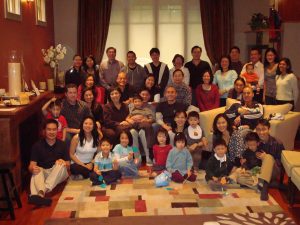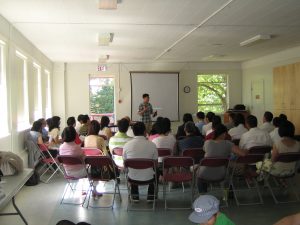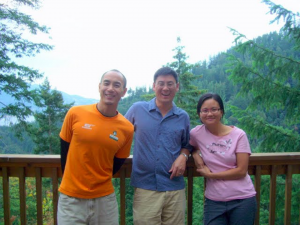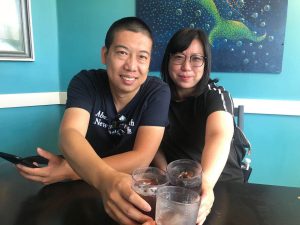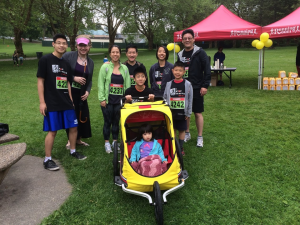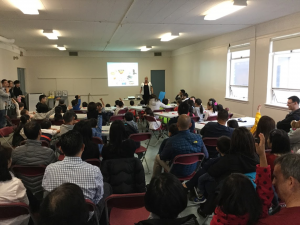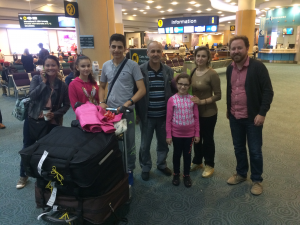Lessons, Waypoints & Milestones: A Confession
We could tell you about all the great things our church has done but instead we’ll tell you about our struggles and the lessons we’ve learned from them about who God is and who we are becoming as we follow him. It is the Holy Spirit who teaches us and leads us. Our only desire is to be attentive and obedient to his voice.
Continuing a Legacy
F3C was born from the leading of the Holy Spirit in two areas. The first was to create a place that would allow next generation Chinese Canadian Christians to grow spiritually and engage missionally with people beyond our own ethnicity and culture (Matthew 28:18-20). The uniqueness of F3C is that from the very start we sought engagement with ethnic diversity while appreciating a particular cultural history. We are a multi-ethnic community
 The second leading was to balance what it means to challenge the existing ways of thinking about being the church while remaining within the trajectory of theology and practice throughout Christian history. We seek to practice the idea of semper reformanda (always reforming) in light of how our current culture (in contrast to the church of Acts 2:42-47) can distort church life and practice. We also wish to be marked by love as the primary Christian characteristic (1 Corinthians 13; 1 John 4:7-12).
The second leading was to balance what it means to challenge the existing ways of thinking about being the church while remaining within the trajectory of theology and practice throughout Christian history. We seek to practice the idea of semper reformanda (always reforming) in light of how our current culture (in contrast to the church of Acts 2:42-47) can distort church life and practice. We also wish to be marked by love as the primary Christian characteristic (1 Corinthians 13; 1 John 4:7-12).In October of 2007, F3C held its first worship service in a living room. It was attended by about 30 people, a third of whom were children under the age of 10. It was an independent church plant based upon faith and a calling by the Holy Spirit. The planting pastors were Ted Ng and Ed Ng. Ed began as an intern while in his final year at Regent College and eventually joined the church as a full time associate pastor in 2008.
In July of 2008, F3C outgrew the living room and we found space at the Dunbar Community Centre. We are often asked if we would want to move into a church building. We are not opposed to the idea but beyond the impracticality and complexity of property ownership we believe there is much more value in being found in and among the people of our city, sharing space and being in relationship. Every week we are reminded, “We don’t just go to church – We are the church.”
One of the significant lessons we learned early was about giving. In March of 2009, a member of our church was thinking missionally and through her work came to know a young woman in need of a new electric wheelchair due to osteogenesis imperfecta or brittle bones syndrome. The member approached our leadership and we had a conversation over what it meant to be generous and to care for others. Although this young woman was not a part of our community and not a Christian we made the decision to help provide the portion of remaining funds she needed to buy the wheelchair. It was a wonderful day when she came to visit us in her new wheelchair! We were learning what it means to be a mutual blessing to others around us.
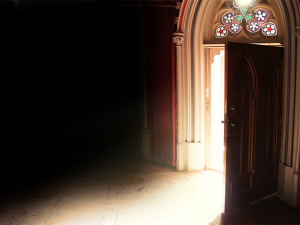
The Lesson of the Open Door: Handling Diversity & Departures Well
As is common in church planting, the ethos of our church surrounding the values of missional discipleship, authenticity, empowerment and diversity needed to be established and communicated. We had to understand our differences as people and test whether or not our church’s vision and direction was for everyone. It wasn’t. So over time, there were folks who felt they did not align with our local expression of the kingdom. It is always painful to say goodbye but we also trust God’s direction in the lives of one another and bless each person as they go on their way. We committed to handling conflicts the best we could in transparent and vulnerable ways. We seek understanding without creating acrimony. We accept differences in one another. Sometimes we are but a waypoint in a person’s journey, a place to rest, learn, grow or recuperate before they continue on their way as God calls them. For some we are a place to settle and help build a place of hospitality. We simply seek to bless each and every single person is with us. Our church is but one local expression of the Kingdom among many. We have learned to pray, “Lord, in your wisdom and mercy, bring to us those who need to be among us and take from us those who need to be elsewhere.” As such we are a nurturing, equipping and sending church.
Another significant challenge came when one of our key leaders had a bout of depression. Pastor Ted had personally experienced such challenges himself in the past and was able to provide support and guidance to both the individual and the church. It was not an easy time and some questioned whether or not someone who was struggling with mental health concerns was a suitable leader since depression can interfere with aspects of competency. Despite this, the church continued to be supportive of the leader by being patient, understanding and caring. It can be difficult to be in a community where we do not put on airs or pretend to be fine when we are not. We welcome those who struggle with issues of stress and depression by providing a place where it is okay not to be okay. It is in the authenticity, honesty and patience that we learn to be like Christ in his love. We learned that love is indeed greatest of all gifts and that people are to be valued for who they are. It may take time to heal and recover – it is not something to be rushed. In this, we learn to wait together.
There were folks who came to faith in our community with broken marriages. In some cases, divorced husbands and wives have both attended our church at the same time. While we uphold the sanctity of marriage as a lifelong vow, we are willing to accept and walk with those who live with the struggle of marriages that have ended. For those who have difficult marriages, we advocate for counselling and reconciliation while standing up against situations of abuse. We learn to love those who do not love each other and walk alongside them without gossiping. In cases where there is no evidence of wrongdoing, we do not take sides. All the while we hold out the invitation and hope of reconciliation and restoration. We learn to walk with those who are conflicted and hurting.
While Pastor Ted continued as lead pastor, Pastor Ed felt called to pursue further studies in psychology in 2011. He enrolled in a Doctor of Psychology program at Fuller Theological Seminary where he has since graduated and is now returned to Vancouver as a fully practicing and licensed psychologist serving as the clinical director of Soma Counselling and Family Resources. Diana Gee, who had been attending our church for several years while attending Regent College, joined our team as a pastoral apprentice in 2009 and stepped into the role of associate pastor in October of 2011. She was ordained in June of 2018.
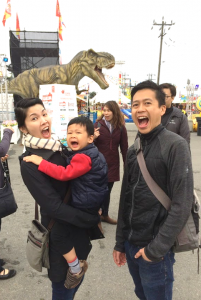
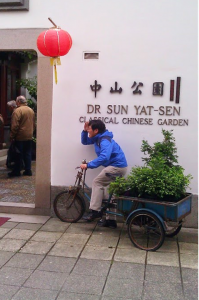
We have also had Pastors Chris Chu (2012-2013) and Ron Chan (2015-2018) as pastoral apprentices/interns. Chris is now the young adults pastor at the Evangelical Chinese Bible Church in Burnaby. Ron is currently serving at the Chinese Church in Christ in Silicon Valley, San Jose. We also welcomed Joyce Qin in September of 2020 into our apprenticeship program. Our team is committed to training future pastors and sending them wherever God calls them minister.
One of the most challenging chapters in our church was when a member of our congregation courageously shared that they had gender dysphoria in 2013. This was slowly disclosed over a period of time during which the pastoral team walked alongside this person and the whole community to encourage understanding, support and fellowship. Every person in the church was consulted. In 2014 our church developed and released a policy in which the person with gender dysphoria was welcomed and affirmed as a believer. Members of the church were allowed to have a variance in their opinions regarding gender transition but were to act with love, grace and acceptance. We became comfortable with living in tension.
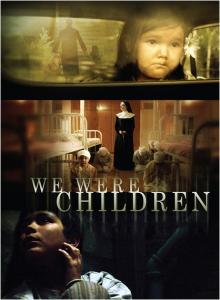


The Lesson of Justice:
Listening with First Nations Peoples
In 2014, our church participated in an event called “Journey Together, Heal Together,” in which the movie, “We Were Children,” dramatizing the injustices of the residential school system was screened. In 2016, our church began to officially recognize that our services are held on the traditional, ancestral, unceded territory of the Musqueam people every week. We wish to understand, listen to and walk alongside our First Nations friends as we see this as a significant issue of justice in Canada. This led to a further attendance of the “Our Stories Define Us” conference at Regent College in 2017. In 2018 we held a Blanket Exercise during our service to educate our congregation of First Nations experiences in light of the colonial history of Canada. We desire to maintain a posture ot listening and learning.
As we have a family in our congregation with an autistic child, we spent time educating our congregation in September of 2015, particularly teachers and children with the help of this family who connected us with experts and practitioners who came to share with us what it means to value, include and care for people who are different but special in their own way – a lesson that can never grow old!
In 2015, our church followed the leading of the Holy Spirit and responded to the Syrian refugee crisis by connected with the Mennonite Central Committee to learn how we could participate in sponsoring refugees. It was a long wait and an involved learning process but in 2016 we welcomed an Armenian Syrian family to Canada. We also had the joy and privilege of welcoming and caring for a Honduran refugee claimant family who eventually received their refugee status in Canada. One of the highlights in our church was to celebrate Christmas service in 2016 in Korean, French, Arabic, Spanish, Mandarin, Armenian, German, Cantonese, Tagalog and English!
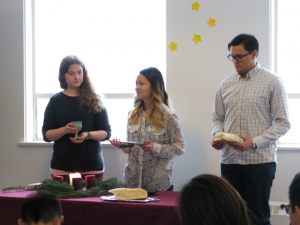
The Lesson of Power: Equality & Ordination
In June of 2018 our church ordained the Reverend Diana Gee. This was the result of rigorous Biblical and theological reflection and study on the subject of women in ministry. While we recognize the diversity of perspectives in the broader Christian community on this topic, we nonetheless believe in pursuing empowerment and justice in our practices. We simply ask, “What would Jesus have us do?” and we do our utmost to be open and obedient to that.
The Road Ahead
Our plans for the future are very simple, perhaps laughably so. We continue to pray, “Lord, may we become the church you want us to be.” Our way forward is built on what we have learned. It is God who leads us and our primary job is to listen, discern and act. Whatever Jesus wants, Jesus gets in our church. We have no grand schemes, no ambitions to become something we are not called to be. In doing so we have discovered we are exactly who we need to be in the moment. We aren’t done learning and don’t plan to be anytime soon.
Lord, be to us who you truly are, not who we want, imagine or are told you are.
Be your true self to us and help us to be our true selves
in order that we might be transformed by your grace into your likeness.
Amen.


